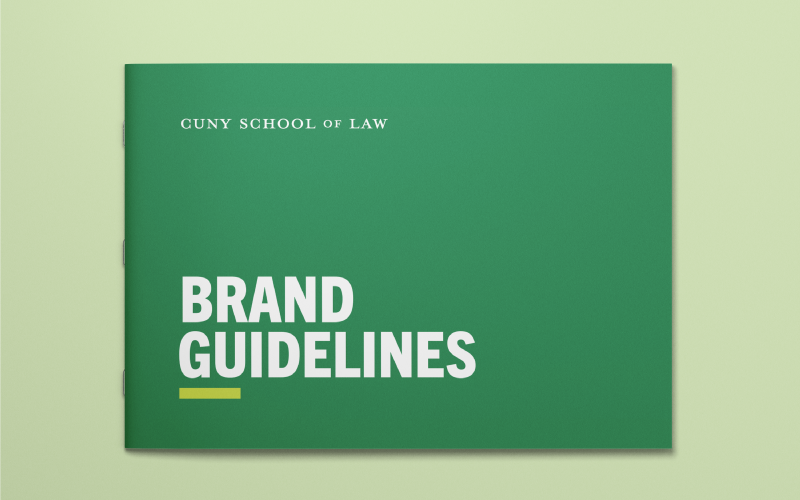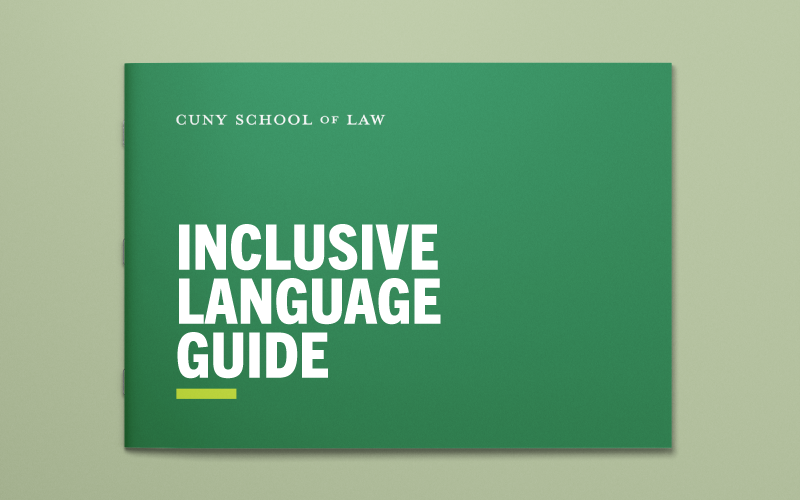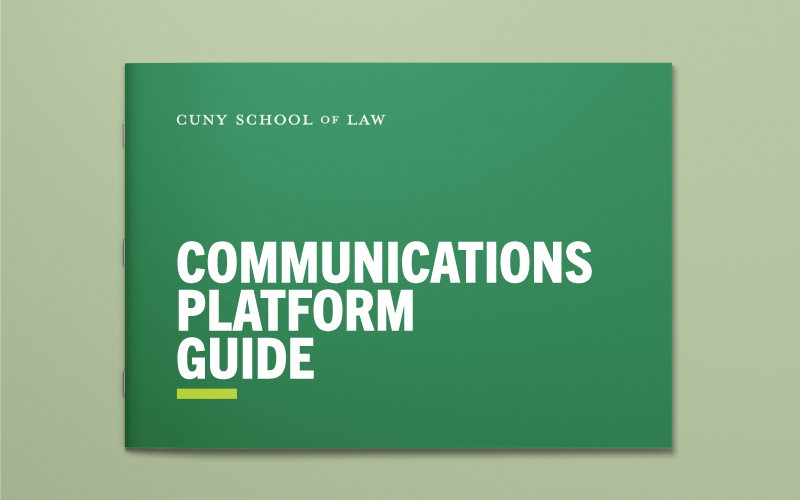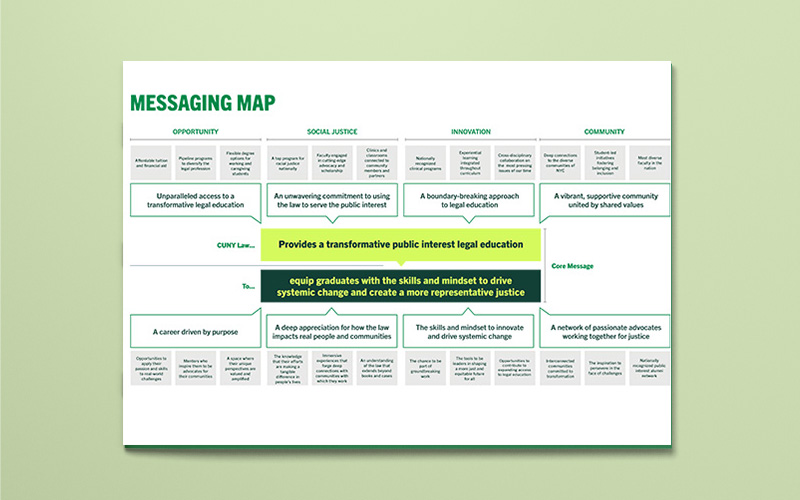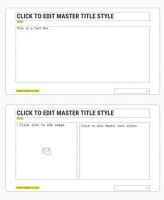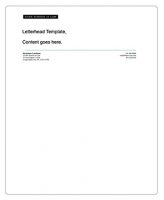Guides
This guide focuses on ensuring that all digital and physical materials are accessible to people with disabilities. It provides guidance on how to create accessible content that complies with legal standards such as the Americans with Disabilities Act (ADA) and Section 508 of the Rehabilitation Act. The goal is to equip you with the knowledge to make all content accessible to individuals with disabilities, thus ensuring an inclusive environment for all users.
CUNYfirst | Captioning Videos | Creating PDF & Office Documents | Creating Emails | Microsoft | Social Media
The Mayor’s Office for People with Disabilities Accessible Virtual Meetings Guide
The Email Standards page provides guidelines and best practices for creating and sending professional emails. It includes:
- Branding guidelines: Instructions on using CUNY Law’s logo, fonts, and colors in email signatures and official communications to ensure consistency with the school’s branding.
- Formatting and design: Recommendations on email layouts, font sizes, and spacing to improve readability and accessibility.
- Signature requirements: Detailed instructions on how email signatures should be formatted, including necessary elements such as name, title, department, and contact information.
Resources
Templates
Brand Assets
Policies & Guidelines
To maintain a cohesive and impactful message across all our platforms, we adhere to the following guidelines:
- External Audiences: All materials intended for external audiences, including alumni, students, faculty, and staff, are guided and reviewed by our Communications team to ensure consistency with our institutional voice.
- Media Relations: Any releases, pitches, or materials intended for media outlets must be reviewed and approved by Communications. Please refer to our editorial style guide and reach out to our team for assistance with media-related content.
- Brand Integrity: We are committed to preserving the integrity of the CUNY Law brand. Communications reserves the right to request revisions or decline content that does not align with our brand identity or poses a conflict with the CUNY Law Foundation.
Our website is the public face of CUNY School of Law, often providing the first interaction with the Law School. As a key communication and marketing tool, we aim to create an engaging, responsive, and user-friendly site that reflects our unique identity and values.
1. Governance Statement
This guidance governs all CUNY Law websites used to conduct official business or provide information. This includes websites under the law.cuny.edu domain.
All sites using the law.cuny.edu domain (e.g., admitted.law.cuny.edu) are governed by this policy. It does not restrict faculty from sharing research or scholarly work.
Goals and Guiding Principles
- Users first: We prioritize the needs of prospective and current students, alumni, donors, staff, faculty, and the greater community in all aspects of design, content, and functionality.
- Brand consistency: Page templates ensure a unified identity and messaging across the site.
- Accessibility: We adhere to the latest accessibility standards to provide an inclusive and engaging user experience.
- Equity: We foster a supportive, respectful, and equitable community.
Roles and Responsibilities
The Office of Communications, in collaboration with IT, ensures compliance with web standards, accessibility regulations, and institutional goals. The Electronic Media Manager oversees the website and has the authority to update or remove content as needed. For any concerns, contact webupdates@law.cuny.edu.
Key Roles:
- Primary Content Contributors: Designated by department heads, these individuals manage their department’s web content, ensuring it is accurate, up-to-date, and compliant with CUNY Law’s style guides.
- Department Heads: Responsible for identifying content contributors and ensuring their training is up-to-date.
- Electronic Media Manager: Manages the digital presence, provides training, oversees web processes, and ensures compliance.
Guidelines
- Department heads must designate a content contributor each fall. New contributors must attend a mandatory training session on WordPress, content writing, and accessibility.
- All content must adhere to CUNY Law’s editorial and branding guidelines. The Electronic Media Manager may edit or remove non-compliant content.
- Copyright laws must be strictly followed. Any infringing content will be removed immediately.
- Google Analytics measures website traffic. Departments can request specific reports by contacting the Electronic Media Manager.
Definitions
- Accessibility: Ensuring compliance with ADA standards for accessible design.
- Domain Name: The unique web address used by the Law School (e.g., law.cuny.edu).
- Responsive Design: A website that adapts to the visitor’s device and screen size.
- Usability: The ease with which visitors navigate and interact with the website.
- UX (User Experience): How users feel after interacting with the website.
- WCAG: Web Content Accessibility Guidelines, established by the W3C, ensuring web accessibility.
- Web Content: Any text, images, or data published on the CUNY Law website by faculty and staff.
CUNY School of Law is committed to fostering a supportive community while respecting the privacy of its members. This policy outlines the guidelines for capturing and using photos and videos on campus or during official events.
Purpose
This policy ensures:
- Clarity on the use of photography and videography.
- Protection of privacy for students, staff, and visitors.
- Alignment with CUNY Law’s mission of inclusivity and respect.
Scope
This policy applies to all faculty, staff, students, contractors, and visitors involved in photography and videography on CUNY School of Law premises or at official events.
Key Principles
1. Privacy and Consent
Photos and videos must NOT be taken without consent, especially in private areas like classrooms or study spaces. Have all persons in photos or videos fill out the Personal Consent & Release Waiver.
At public events, general consent is assumed unless individuals opt out.
2. Use of Photos and Videos
CUNY Law may use photos and videos for promotional materials, social media, or publications, but explicit consent is required for identifiable individuals in marketing.
3. Distribution and Sharing
Unauthorized sharing of images or videos that infringe on someone’s privacy is prohibited. Official photos and videos must be securely stored.
4. Rights of Students and Faculty
Students, faculty, and staff can request the removal of images or videos from CUNY platforms if they did not provide consent or feel uncomfortable.
5. Inclusive Representation
Photography should reflect the diversity and values of CUNY Law, promoting inclusivity and accurate representation.
Procedure
For Official Events
Event organizers must notify attendees if photography will occur. Consent forms are required for promotional use.
For Individuals
Those who do not wish to be photographed should notify event organizers or the media coordinator.
External Photographers
External photographers hired by CUNY Law must follow this policy and respect the privacy of individuals.
Contact
For questions or to report a violation, please contact the CUNY Law Communications Office at communications@law.cuny.edu.
We are committed to providing students, faculty, staff, and the general public with the technology and information they need, and to making these resources accessible to all, in accordance with CUNY’s Policy on Equal Opportunity and Non-Discrimination and applicable law.
This site provides resources and information on technology accessibility for students, faculty, and staff at the CUNY School of Law. Here you can find links to campus accessibility resources, information on the creation of a new Electronic & Digital Accessibility Task Force, and details on accessibility in system-wide applications.
Find out what it means to make information technologies and digital materials accessible to people with disabilities and what you need to know. Get Started!
All CUNY School of Law electronic and information technologies must be accessible to all individuals who wish to access them, and accessibility must be addressed in connection with the procurement, development, implementation, and ongoing maintenance for all existing and new electronic and information technology acquisitions.
It is the responsibility of our administrators, faculty, and staff to ensure equal and effective electronic and information technology access.
Any information and technology including, but not limited to, computers and ancillary equipment, instructional materials, software, videos, multimedia, telecommunications, or web-based content or products, developed, procured, maintained, or used in carrying out university activities must be compliant with Sections 504 and 508 of the Rehabilitation Act of 1973, as amended; the Americans with Disabilities Act of 1990, as amended; New York State IT Policy NYS-P08-005, and other related local, state, and federal laws, and University policies.
Compliance means a person with a disability must be able to acquire the same information, engage in the same interactions, and enjoy the same services as a person without a disability, and be able to do so in an equally effective manner, with substantially equivalent ease of use. The person with a disability must be able to obtain the information and services as timely, fully, equally, and independently as a person without a disability.
Complaints concerning technology accessibility
If you have difficulty accessing electronic or information technologies due to a disability, please contact webchanges@law.cuny.edu and provide the following information:
- the web address of the requested material,
- a description of the accessibility problem,
- the preferred format to receive the requested material,
- and your contact information (name, email address, and phone number).
Complaints that electronic information and information technologies are not accessible should be made under the process set forth in CUNY’s Procedures for Implementing Reasonable Accommodations.
Students with complaints should contact the Office of Disability Services & Accommodations and our Chief Diversity Officer, Michael Valente.
Employees with complaints should contact the Office of Human Resources.
Members of the public with complaints should contact webchanges@law.cuny.edu
Accessibility of law.cuny.edu website
We affirm our commitment to making web-based, electronic content accessible to everyone who uses the site.
We use the World Wide Web Consortium’s Web Content Accessibility Guidelines (WCAG) Version 2.1, AA conformance level as its accessibility standard.
We welcome comments or suggestions on improving the accessibility of its website and information technologies. Please send comments or suggestions on accessibility to: webchanges@law.cuny.edu


